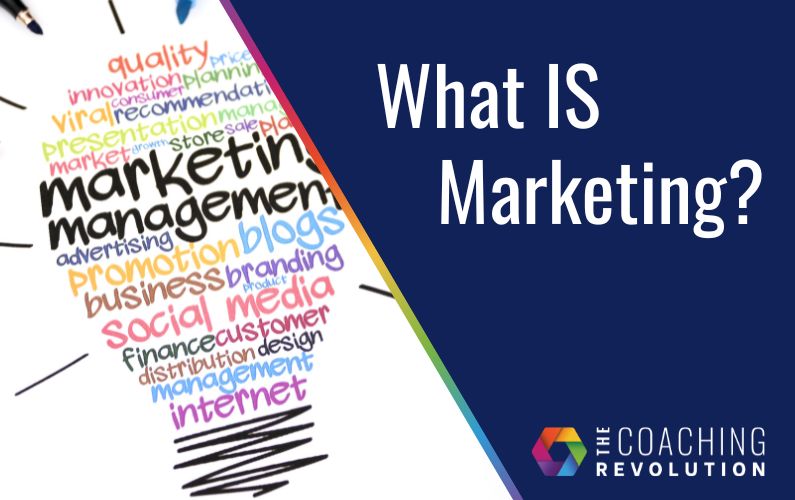Marketing isn’t what most people think it is. It’s not advertising billboards or pushy salespeople. As Seth Godin puts it, “Marketing is the generous act of helping someone solve a problem. Their problem.” Marketing, at its core, is about understanding people and creating connections that serve them.
The Evolution of Influence
Marketing began thousands of years ago when humans first had something to sell, from ancient Egyptian papyrus advertisements to medieval shopkeeper signs. The modern advertising industry took shape in the 1920s with the rise of radio, when brands could suddenly speak directly to families in their living rooms.
The Mad Men era of the 1960s marked advertising’s golden age, dominated by Madison Avenue agencies where creativity flourished and campaigns focused less on what products did and more on how they made consumers feel. Pioneers like David Ogilvy, Leo Burnett, and Bill Bernbach transformed the industry by introducing the concept of creative revolution, pairing copywriters with art directors for the first time.
Television brought visual demonstration and emotional connection to mass audiences. Then came the digital revolution in the 1990s, transforming advertising from art into science. Technology increased daily ad exposure from 500 advertisements in the 1960s to 4,000-10,000 today.
The Three Pillars of Modern Marketing
Today’s most effective marketing practitioners understand three fundamental truths about human behaviour.
1) People Want Stories, Not Products
Every effective marketing message follows the same timeless structure found in myths, films, and novels. A character wants something, encounters obstacles, meets a guide who provides a plan, and takes action to succeed or fail. Story is the most powerful weapon against marketing noise because it organises information in ways that compel attention.
As coaches, we sell solutions to external problems – the practical challenges our clients face – but clients buy solutions to internal problems. Those challenges include things like how they feel stuck, what they fear about change, and who they want to become. You’re not the hero of their story, you’re the guide helping them win.
2) Psychology Trumps Logic Every Time
Rory Sutherland, Ogilvy’s Vice Chairman, champions “thinking psycho-logically” over pure logic. As he puts it, “The human mind does not run on logic any more than a horse runs on petrol.” His research shows that context and perception matter more than facts: “Advertising adds value to a product by changing our perception of it” and “What works isn’t always logical.”
Sutherland demonstrates how tiny contextual changes can completely alter meaning and emotional response. The classic Avis campaign We’re number two, so we try harder turned weakness into strength through clever positioning. Most decision-making is driven by emotion, not logic.
3) Trust Must Be Earned, Not Demanded
Seth Godin’s concept of “permission marketing” recognises that marketers must earn the right to communicate by building trust and providing value first. Instead of interrupting people with unwanted messages, you gain consent before engaging them. As he explains, “Great marketers rely on empathy, connection, and emotional labour instead of attention-stealing ads.”
The Universal Focus
Despite technological advances, all marketing shares one focus – changing behaviour. Whether it’s buying a product, adopting a belief, or taking action, marketing “changes people through stories, connections and experience.” The methods evolve – from town criers to TikTok – but the purpose remains constant.
Every successful marketing campaign answers the same questions:
- Who are you trying to reach?
- What do they really want?
- What’s stopping them from getting it?
- How can you help?
The answers shape everything from messaging to medium selection.
Modern advertising has transformed from gut instinct to data-driven strategy, but the fundamentals remain unchanged. As Sutherland notes, “Consumer research reveals the past, not the future” and “Market research is imperfect. People don’t always say what they mean or do what they say.”
The Coaching Challenge
Professional coaches face a unique marketing challenge. Every human being is on a transformational journey, seeking guides who can help them navigate their chapters. As coaches we are perfectly placed to be that guide, but as a profession we are not very good at all at articulating why those humans should choose us. This is magnified by the fact that coaches have a problem no other provider of professional services has – people think they know what we do, but they’re wrong.
They assume coaching is advice-giving, therapy, or consulting, they don’t understand that coaching is about unlocking their own solutions. This misconception creates a barrier that traditional marketing approaches can’t penetrate.
At The Coaching Revolution, we recognised this wasn’t a new problem requiring new solutions. Instead, we took established marketing principles and honed them specifically for professional coaches. We used psychological insights to address the internal problems – fear of vulnerability, desire for control, need for hope – that drive coaching decisions. We built permission-based systems that demonstrate value before asking for trust.
That’s what all effective marketing does. It takes universal human truths and applies them with surgical accuracy to specific audiences and the coaches who thrive understand this. The ones who struggle are still trying to convince everyone (anyone!) that they need coaching, instead of showing them how coaching solves problems they already know they have.
An Opportunity
If you’d like the opportunity for a robust conversation about this, why not join my free challenge, Nail Your Niche? There’s even an option to upgrade to a VIP version, which gives you 3 x 60-minute group mentoring sessions with me for just £99 (inc VAT).
If you’re open to having a conversation with me about what marketing actually is, register for the challenge by clicking here.
